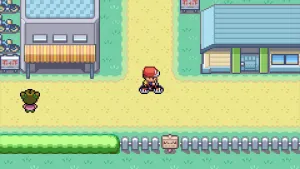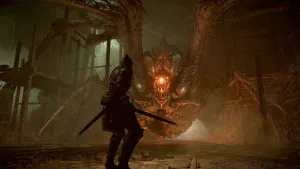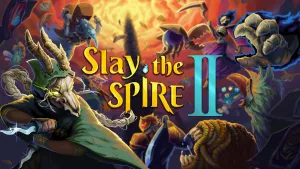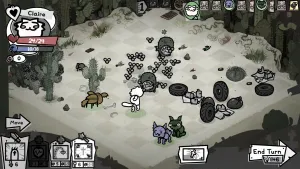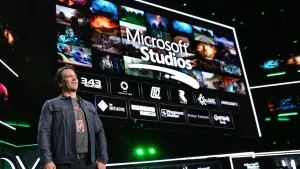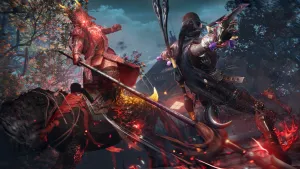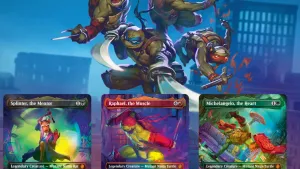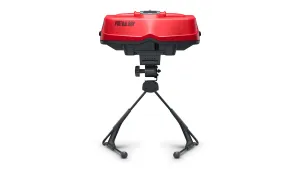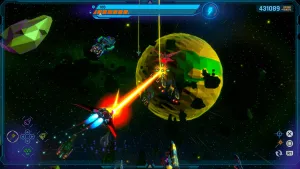Insomniac And EAP: We Talk With Ted Price And David DeMartini

Today’s announcement that Insomniac and EA Partners have entered into a partnership raises loads of questions. What does this mean for the future of PlayStation exclusives Ratchet & Clank and Resistance? How long has this deal been in the works? Are they ready to give up any details on this mysterious game? To get the answers to these questions and more we talked to Insomniac president and CEO Ted Price and David DeMartini, general manager of EAP.
 |
| Ted Price |
How long has this deal been in the works?
Ted Price: We certainly have known about each other for a long time, and when we began talking internally about a multi-platform title, we went out and talked to multiple publishers, and we found out that in particular EAP matched us in terms of our desire for quality over quantity. And with their global reach and their expertise in supporting independent developers who own their own IP it seemed like a perfect fit, and so far it’s been fantastic.
David DeMartini: The funny thing about the EAP program is it’s our job to talk with people like Ted all the time. A lot of people ask the question, ‘When did this deal come to fruition?’ We’ve been working on this deal, along with those other deals for years because in the industry it’s all about relationship and about trust. It’s about somebody like Insomniac who has, historically over the last 16 years done great things, trusting you as a partner that you’re going to be able to help them do their next great thing. That kind of trust is not just built instantaneously. That trust is built over a long period of time. I remember the first impression that Ted made on me a while back – this would be a personal interaction, as compared to an impression with the games that his company has been making – we were both on a panel together about four or five years ago. I think I was working on Godfather at the time and Ted was working on one of his franchises. It just really struck me that this was a business leader who has been able to sustain a creative organization with great growth and great health over a long period of time. That’s somebody who, if I was ever in a position to partner with somebody, is somebody that I would want to partner with. Lo and behold, here we are years later with an announcement. These deals take a long time to nurture, then they kind of explode onto the scene with an announcement.
Was there anything in particular behind the timing of this announcement?
Price: Well, we’ve been talking about multi-platform for a while. We have taken a very measured approach to everything we do, and we are at the point in our life-cycle as a company where we can expand to the Xbox 360. Our goal at this point is to reach as many players as possible. We’re certainly excited to bring this game to our fans on the PlayStation 3, but we also want to reach out to Xbox 360 players as well and bring the kind of experiences we’ve been creating for a long time to them.
Are you only working on one game in this deal?
Price: [Yes,] This agreement covers one game.
DeMartini: If you look at everything that Insomniac has ever done, they are creating new universes and new franchises. The deal’s scope that we are talking about today is this first game. The EA Partners program tends to pride itself in, you know, this isn’t about contracts, this is about relationships. We try and earn the business every time we work with a partner, and we’re confident when insomniac delivers the high-quality content that we know they will create in this universe, we will be their partner.
Does EAP have the right of first refusal with future games for this IP?
Price: Our goal is to work with the best partners in the world. We also, as you can tell from our history, have a history of long relationships. So, when we find somebody we like working with, we prefer to continue working with them.

Is this a chance to try out a different genre?
Price: Our deal with EAP is about creating great content and about a great partnership. There isn’t any particular genre that would be allowed or disallowed by working together. We’re not getting that specific right now.
Are you considering handheld or other platforms?
Price: Again, we’re just focusing on the PlayStation 3 and the Xbox 360 right now.
Who owns the rights to the Resistance and Ratchet franchises? Will you continue making games for those series or can Sony continue on without you at the helm?
Ted Price: Our commitment and our relationship with Sony continues, and it’s as strong as ever – as is our commitment to Ratchet and Resistance. We will continue to be making games with Sony. Sony does own the intellectual property rights for Ratchet and Resistance. But, as I said, the relationship remains great. For our fans of Ratchet and Resistance, I just want to reiterate that we’re still very committed to those franchises and excited about what we’re doing there. I think that PlayStation 3 fans will still get a lot of the Insomniac experience from those franchises and from what we’re doing with EAP.
 |
| David DeMartini |
EA Partners has also signed on Respawn Entertainment. Were you guys working on the Respawn and Insomniac deals at the same time, and are you guys managing the games from these two partners to make sure that they don’t come out with games in the same genre, or their release timing is different?
DeMartini: Yeah, that’s really much of a consideration when we have conversations with great independent developers. When you think about it, if we don’t sign the partners someone else is going to sign these great patterns, and there’s a potential collision in the marketplace if the title was coming from someone else. I think as we are managing a portfolio of products, we can give advice to the independent developers, but I think most importantly all of these games in any genre or across all these genres, are going to ship when the great games are great. That is certainly the reputation of the Respawn guys, the Insomniac guys, Valve, Crytek, Harmonix… As you go down the list, these are very unique, high-quality game makers. Whether it’s on one platform or multiple platforms, I don’t think is going to matter at all. I just think Insomniac, and what we’re here to talk about today, is for the first time going to be releasing multi-platform, and they are going to be bringing the magic they’ve brought to the Sony platform to not only the Sony platform, but to another platform. And we couldn’t be more excited about that and when it’s great, Ted will tell us it’s ready.
Are you at Insomniac getting or anticipate getting any tech help from EA studios?
Price: We’ve always developed our own tech internally, and we’re very proud of our ability to do that and we will continue to do so.
DeMartini: I don’t think Insomniac needs anybody’s help to make great technology and to make great games. We will play whatever small part that EAP typically plays in these deals and we’re just going to mostly get out of the way and let Insomniac do what they have historically done. On the other hand, if they ever need any level of assistance, EA is there for Insomniac 110 percent with whatever they need.
Price: That’s one of the things that was so great talking early with EAP is just their reiteration that they’re there to help us with the process and it’s a very symbiotic relationship. That’s again what makes us very excited about moving ahead with this new project together.
Would Insomniac’s tech be usable by any of EA’s studios?
DeMartini: No, that’s not something that we were contemplating. Insomniac is an independent studio and they have their own technology, which is fantastic, and it’s really not customary or typical in any of the EAP deals that we would be obtaining technology.
Is there anything you’ve learned working on the other Insomniac games that you think will apply to this new franchise?
Price: We learn lessons every day about the development process. Part of the fun of being in this industry is that the rules are constantly changing under your feet. I think what we’ve learned more and more is to be more flexible in terms of our openness to do new development processes and our approach to design, and certainly most recently in our embracing of multiple platforms. We’re excited to be moving into and adding a set of new fans to what we do. I can’t say that there’s anything in particular that we’ve learned, it’s just that we know that this will continue to be a process where we discover new things all the time.
DeMartini: After 15 or 16 years, Ted, you should write a book.
Price: [Laughs] It would be outdated in about a week.

Get the Game Informer Print Edition!
Explore your favorite games in premium print format, delivered to your door.
- 10 issues per year
- Only $4.80 per issue
- Full digital magazine archive access
- Since 1991
